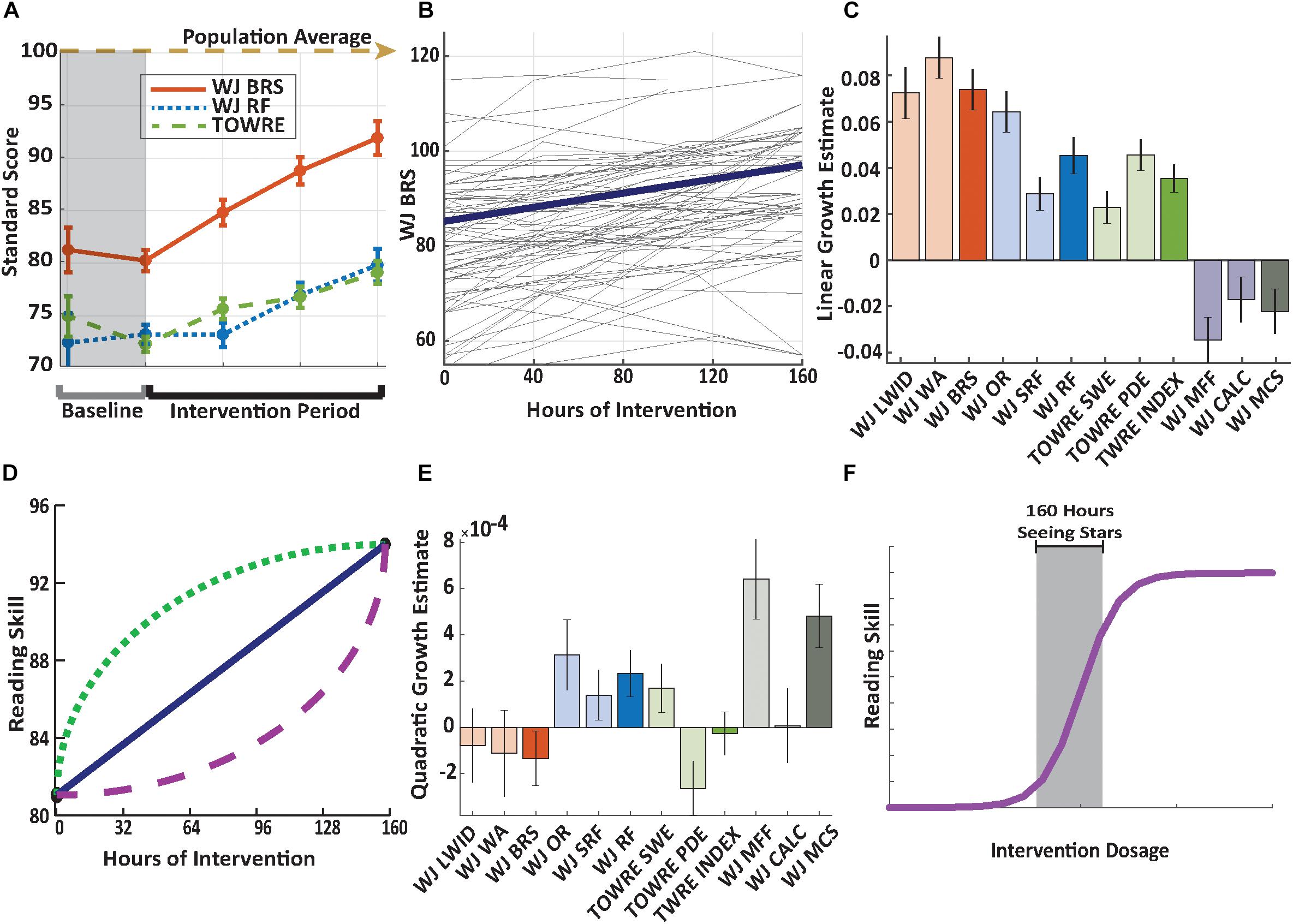Intensive Summer Intervention Drives Linear Growth of Reading Skill in Struggling Readers – Donnelly, 2019

Donnelly PM, Huber E, Yeatman JD. Intensive Summer Intervention Drives Linear Growth of Reading Skill in Struggling Readers.Frontiers in Psychology (2019)
A major achievement of reading research has been the development of effective intervention programs for struggling readers. Most intervention studies employ a pre-post design, to examine efficacy, but this precludes the study of growth curves over the course of the intervention program. Determining the time-course of improvement is essential for cost-effective, evidence-based decisions on the optimal intervention dosage. The goal of this study was to analyze reading growth curves during an intensive summer intervention program. A cohort of 31 children (6–12 years) with reading difficulties (N = 21 with dyslexia diagnosis) were enrolled in 160 h of intervention occurring over 8 weeks of summer vacation. We collected behavioral measures over 4 sessions assessing decoding, oral reading fluency, and comprehension. Mixed-effects modeling of longitudinal measurements revealed a linear dose-response relationship between hours of intervention and improvement in reading ability; there was significant linear growth on every measure of reading skill and none of the measures showed non-linear growth trajectories. Decoding skills showed substantial growth [Cohen’s d = 0.85 (WJ Basic Reading Skills)], with fluency and comprehension growing more gradually [d = 0.41 (WJ Reading Fluency)]. These results highlight the opportunity to improve reading skills over an intensive, short-term summer intervention program, and the linear dose-response relationship between duration and gains enables educators to set reading level goals and design a treatment plan to achieve them.